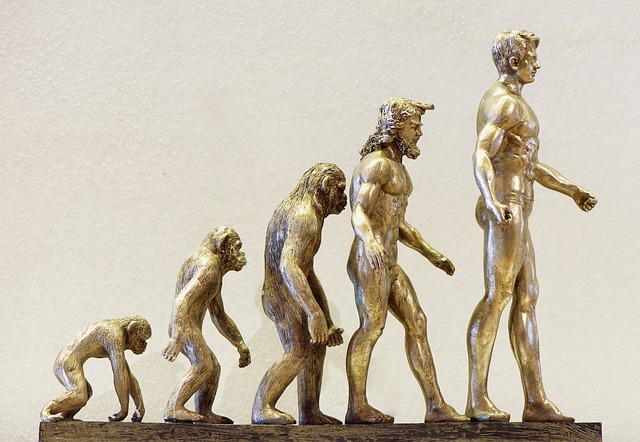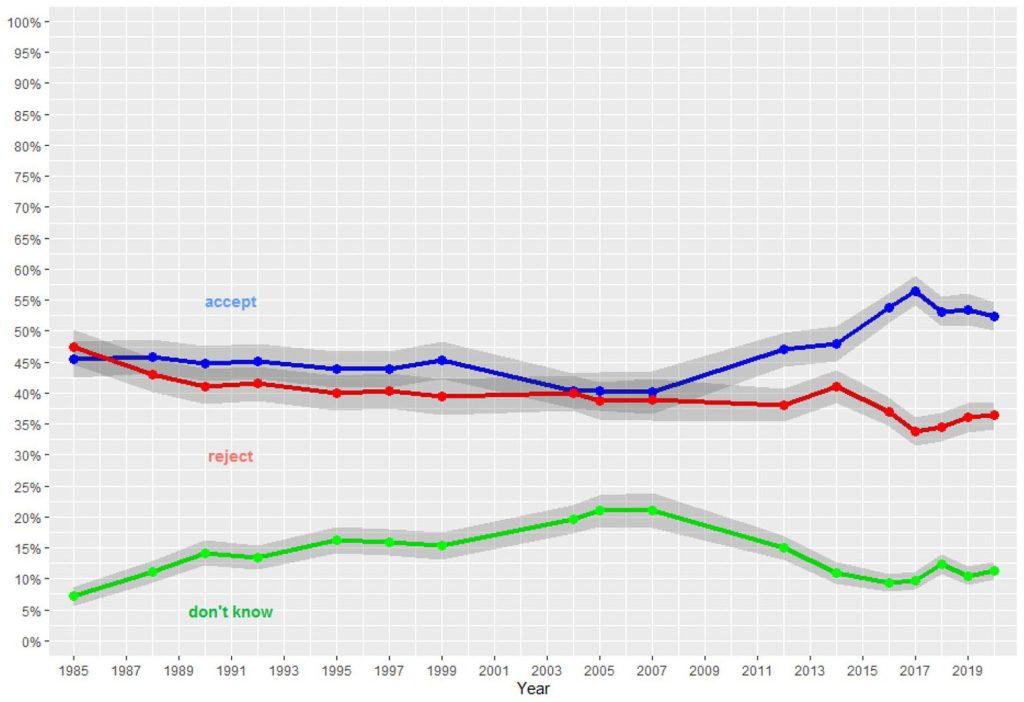
Highlights:
– According to a recent University of Michigan study, 54% of Americans now accept the theory of evolution as the most plausible explanation for the origin of human life
– This is a significant increase from 2011, when only 40% of Americans agreed with evolution, and a historic high since the survey began in 1985.
– The survey also discovered a disparity between religious and non-religious Americans on this issue has narrowed as more religious groups have become more accepting of evolution over time.
– The main reasons for the increased acceptance of evolution include greater exposure to scientific evidence, more education and awareness, and less influence of political and ideological factors.
– The survey results suggest that evolution is becoming less controversial and more widely accepted as a scientific fact in the United States.
Introduction
The study of evolution has been a source of debate in the United States for a long time, with some people seeing it as a direct challenge to their religious beliefs. Recently, however, a much larger portion of the population has come to accept the scientific explanation of how species arise and have begun to embrace evolution as a natural cycle of life.
Acceptance of Evolution is Growing
The acceptance of evolution has grown significantly in recent years, with 64% of the population now accepting the scientific explanation, up from 40% in the 1980s. This is a significant increase from the 1980s. Jon D. Miller, also the lead researcher of the Institute for Social Research, said: There was a statistical tie between acceptance and denial of evolution from 1985 to 2010. But acceptance then surged, becoming the majority position in 2016.
The growing acceptance of evolution is due to the increase in scientific literacy over the past few decades.
In 2018, nearly twice as many Americans had a college degree as in 1988, said co-author Mark Ackerman, a researcher at Michigan Engineering. It’s challenging to graduate from college without developing at least a passing admiration for science’s achievements.

The researchers studied a number of national surveys financed by divisions of the National Science Foundation, a collection of biannual surveys from the National Science Board, and a series on adult civic literacy supported by NASA. Since 1985, this national sample of American adults has been asked if they concur or disagree with the following statement: “Human beings, as we know them today, developed from earlier species of animals.”
Between 1985 and 2007, studies revealed that Americans’ opinions on evolution were split equally. On the other hand, over the previous ten years, up until 2019, the proportion of American adults who agreed with this statement rose from 40% to 54%.
Factors Leading to Evolution Denial
The largest element influencing people’s rejection of evolution, according to the current study, is religious fundamentalism. According to the poll, 30% of Americans still identify as religious fundamentalists, despite a minor reduction in their numbers over the past ten years. However, even the most religiously fundamentalist individuals began to accept evolution, with support climbing from 8% in 1988 to 32% in 2019.
Miller predicted that religious fundamentalism would continue to impede the public acceptance of evolution.
“Such beliefs are not only tenacious but also, increasingly, politicized,” he said, citing a widening gap between Republican and Democratic acceptance of evolution.
As of 2019, 34% of conservative Republicans accepted evolution compared to 83% of liberal Democrats.
Conclusion
Evolution has become increasingly accepted by a majority of Americans, leading to a more measured understanding of the natural world and a greater appreciation of the environment. This will lead to increased awareness of the environment in the future.















